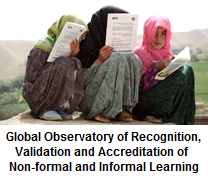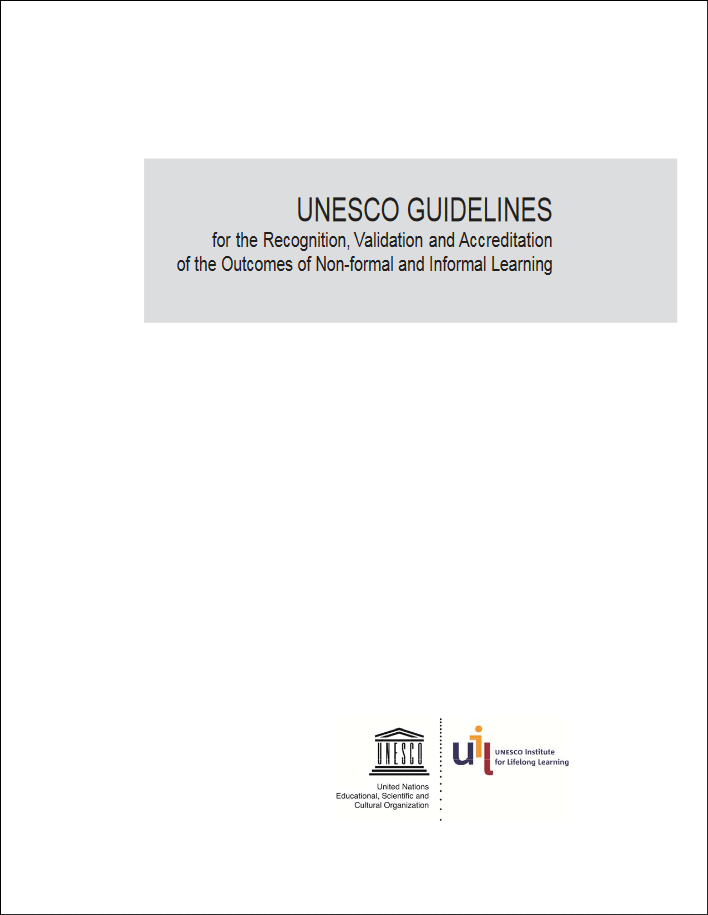
Implementing the UNESCO Guidelines
In 2009, the Framework for Action, adopted by 144 delegations of UNESCO Member States at the Sixth International Conference on Adult Education (CONFINTEA VI) in Brazil, mandated UNESCO to develop the UNESCO Guidelines to recognize, validate and accredit learning. The Framework called on Member States to develop or improve structures and mechanisms for the recognition of all forms of learning. In the meanwhile, the UNESCO Guidelines have been translated into many languages: French, Spanish, Laotian and Arabic. UIL supports Member States to monitor the implementation of the Key Areas of Action at the national level and make RVA a priority on their political agenda (UIL, 2012).
The UNESCO Guidelines advocate the adoption of RVA principles and practices by all Member States in order to recognize and value all types of learning and develop or improve structures and mechanisms to recognize all forms of learning. The Guidelines include the implementation of RVA in six key areas of action at the national level.
- Recognition Validation and Accreditation of Non-formal and Informal Learning in UNESCO Member States
- UNESCO Guidelines on the Recognition, Validation and Accreditation of the Outcomes of Non-formal and Informal Learning launched in New Delhi, 29–30 June 2012
- Capacity Building for Implementing the UNESCO Guidelines on RVA of Non-formal and Informal Learning

